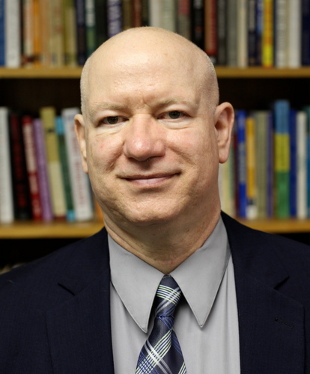Publisher's note: The author of this post is Barry Smith, who is a writer for the Carolina Journal, John Hood Publisher.
Rift involving Rucho doesn't slow plan cutting rates, ending exemptions
RALEIGH - The state Senate, amid a rift among the chamber's leadership, gave its initial approval Thursday to a tax reform bill that would establish a flat tax, lower personal income taxes, and phase out the corporate income tax.
The measure, House Bill 998, passed the Senate by a 30-17 vote, with two Republicans joining 15 Democrats in opposing the bill.
One of those opponents was Sen. Bob Rucho, R-Mecklenburg, who Thursday sent a letter resigning his post as co-chairman of the Senate Finance Committee as a result of differences on the tax reform issue. Senate leader Phil Berger, R-Rockingham, refused to accept Rucho's resignation.
"It would be inappropriate to oppose [the tax bill] and be part of the leadership," said Rucho, who had prepared a separate, more sweeping tax reform proposal. Rucho made the comment after the Senate approved the legislation, adding that "there's no way" he could be a member of leadership and oppose the bill backed by the head of the Senate.
Rucho's proposal would have expanded the sales tax to cover most services. He has maintained that special interests would push back against the expansion and try to protect their loopholes. Rucho said that comprehensive tax reform was necessary in order for the reform to have the desired effect of kick-starting the state's economy.
Rucho said that while he believes that Berger would like to see the more sweeping reform, the Senate leader was getting pushback from Gov. Pat McCrory and House Speaker Thom Tillis of Mecklenburg County, both Republicans.
"Unfortunately, McCrory and Tillis felt more pressure than they could withstand," Rucho said.
Tillis, in a statement, responded by saying Rucho was speaking out of frustration.
"This simply appears to be frustration that adequate support could not be generated for this particular tax plan in the Senate," Tillis said of Rucho's broader proposal. "The House, meanwhile, passed a tax reform plan last week. We'll continue to work with the governor and the Senate toward the common goal of tax reform."
McCrory's office chose not to comment on Rucho's statement.
Shelly Carver, a spokeswoman for Berger, said in a statement that Berger plans to keep Rucho on as co-chairman of the committee.
"Sen. Berger does not withdraw his appointment, and Sen. Rucho will remain the co-chairman of the Senate Finance Committee," Carver said.
The bill passed the Senate following two-and-a-half hours of spirited debate.
"We have a tax system, a tax code that is overly complicated," Berger told his fellow senators. "It is a tax code that is sorely in need of updating and reform."
Sen. Bill Rabon, R-Brunswick, said tax reform is needed to boost economic activity in the state.
"We have to prostitute our state to get people to come to it," Rabon said.
Senate Majority Leader Harry Brown, R-Onslow, echoed many of his GOP colleagues when he said that this bill was just the beginning of tax reform.
"If we don't pass a tax reform bill of some kind this year ... it will be 10 years before we try again," Brown said.
Democrats seemed to echo Rucho, arguing that H.B. 998 did not constitute comprehensive tax reform. Several said the bill could put both state and local governments in a bind.
Sen. Floyd McKissick, D-Durham, called the bill a "piecemeal" approach to tax reform. "It's regressive," he said.
He went on to lament the position many municipalities could face because of bill would eliminate the local sales tax on food and privilege taxes.
Counties eventually would be allowed to reinstate the local sales tax on food.
Sen. Dan Clodfelter, D-Mecklenburg, noted that the proposal is projected to reduce state revenues.
"A true restructure of the system should be revenue neutral," Clodfelter said, noting that when fully implemented, the tax overhaul plan would yield $1.3 billion a year less than otherwise would flow into state coffers.
Sen. Josh Stein, D-Wake, argued that the bill was "a tax cut for the wealthiest among us, and for large out-of-state corporations." He said he didn't like how Social Security income would be taxed by the state.
An analysis prepared by the nonpartisan legislative fiscal staff found that under the scenarios it studied, H.B. 988 would deliver a lower tax bill on average to North Carolinians than they would receive if no reform took place.
The analysis studied different income levels for four categories - married couples filing jointly with two children, married couples filing jointly with no children, head of household with one child, and single.
The plan would lower the personal income tax rate to 5.25 percent over two years, from the current tiered rates ranging from 6 percent to 7.75 percent, depending on income. It also would create a zero tax bracket for the first $15,000 of income for people filing under the married filing jointly status.
The corporate income tax would be phased out by Jan. 1, 2017. Separate flat business privilege taxes would be assessed to limited liability corporations and C corporations.
A final vote on the bill in the Senate is expected Tuesday.























